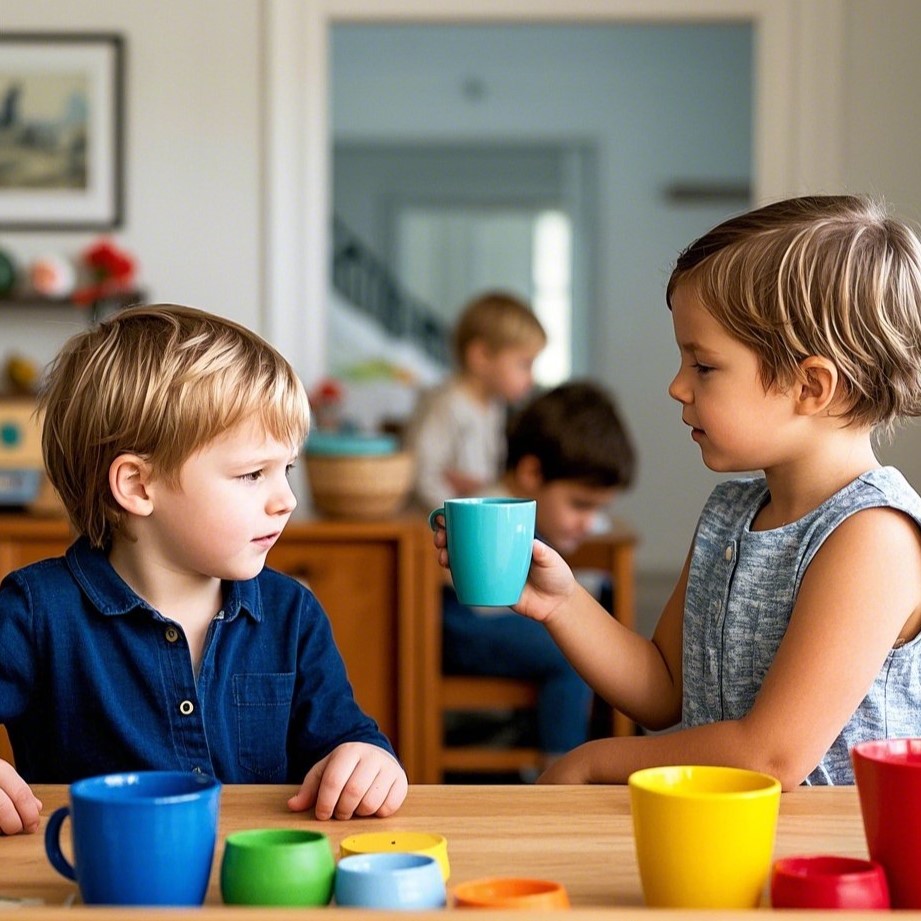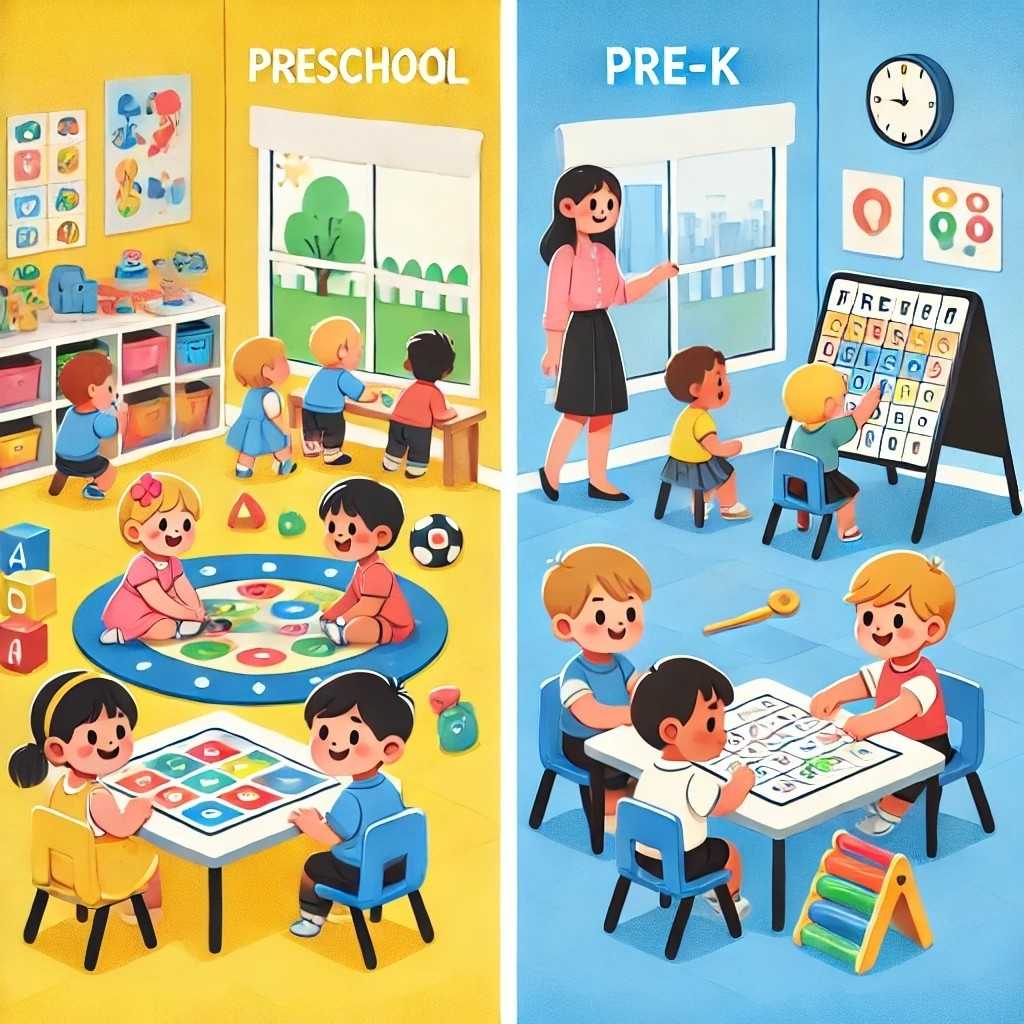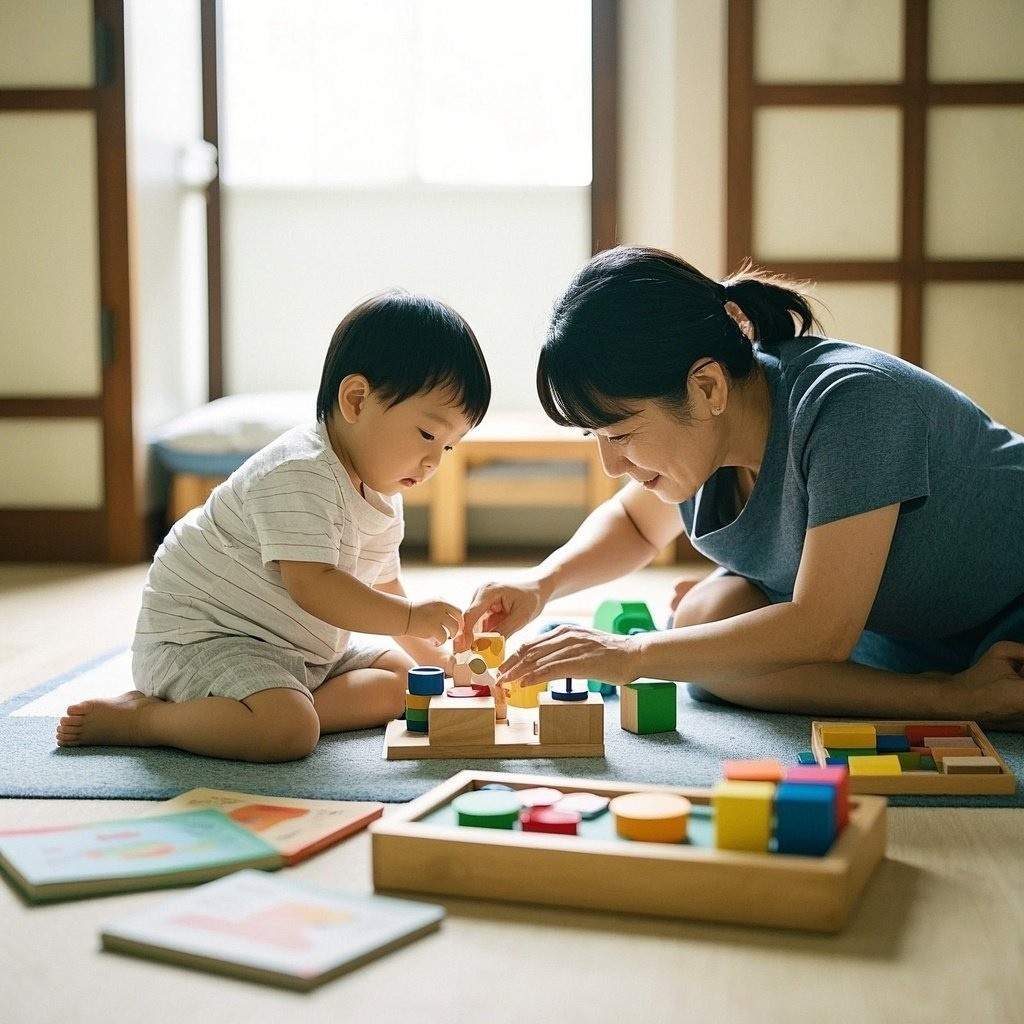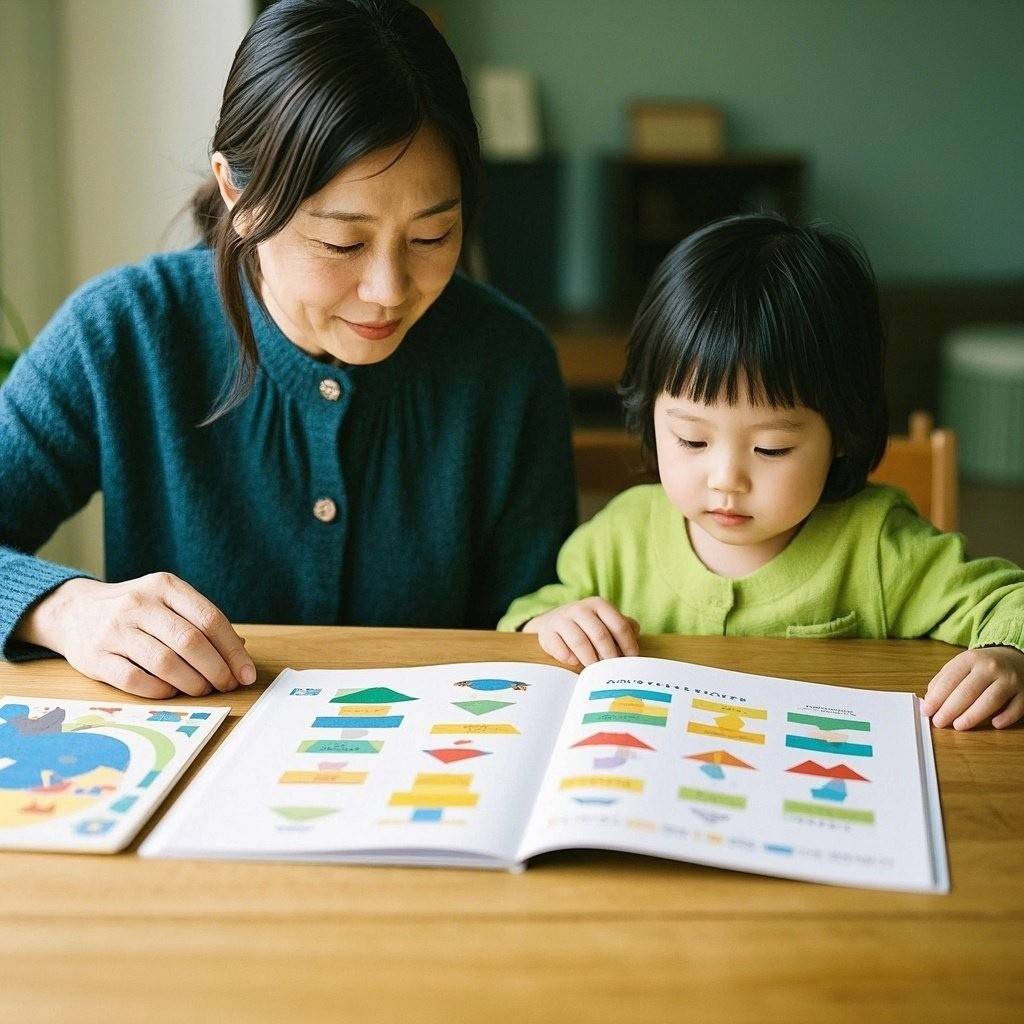There was a time when every day in our home felt like a whirlwind—meltdowns over the wrong color cup, endless clutter, and constant power struggles that left us drained. Our mornings were chaotic, our evenings exhausting, and in between, we often found ourselves parenting reactively rather than intentionally. It felt like we were merely surviving parenthood.
That was before we discovered Montessori parenting—an approach that has not only reshaped the way we raise our children but has brought a remarkable sense of calm, clarity, and connection into our home life.
Life Before Montessori: A Daily Struggle
Before embracing Montessori principles, our parenting approach was a mix of well-intentioned advice, inconsistent boundaries, and a desperate attempt to maintain control. We constantly picked up after our children, dictated their every move, and assumed that being “in charge” meant having all the answers. It wasn’t working.
Tantrums were frequent. Simple routines—getting dressed, mealtime, bedtime—turned into battles. Toys overflowed from bins, often untouched. Despite our best efforts, we were overwhelmed, and our children seemed just as frustrated as we were.
The turning point came one particularly chaotic morning. Our toddler was screaming, the baby was crying, and I remember thinking, there has to be a better way. That moment marked the beginning of our Montessori parenting journey.
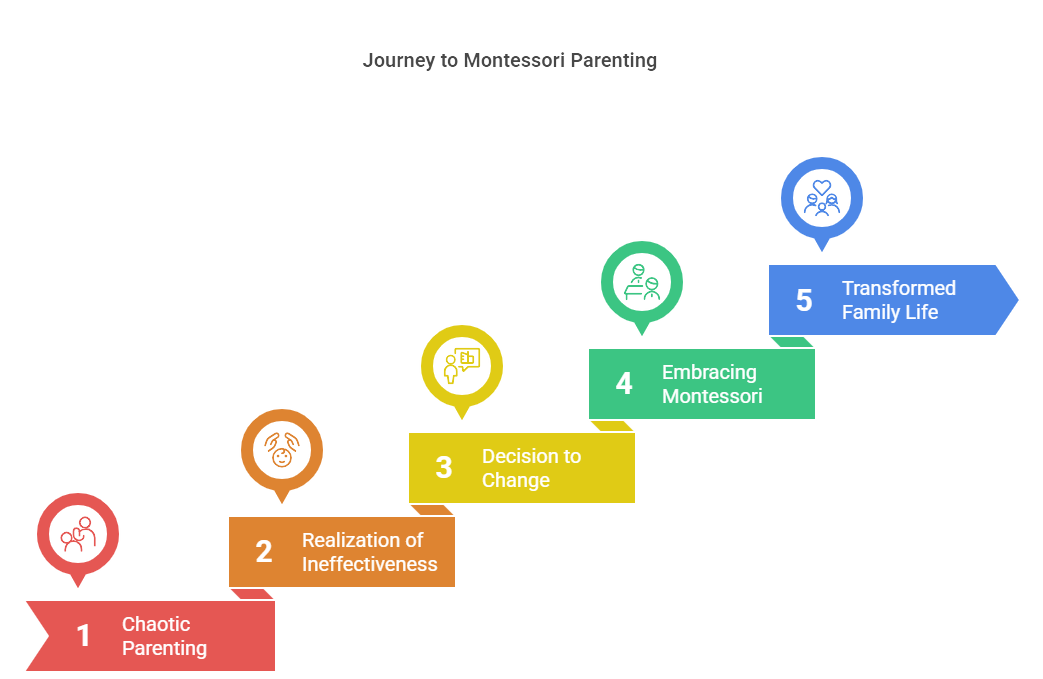
Discovering Montessori: A New Perspective
I first stumbled upon Montessori during a late-night scroll through parenting blogs. A post titled “Raising Capable Children Through Respect” caught my attention. It introduced me to Dr. Maria Montessori’s philosophy: that children are naturally curious, capable, and worthy of respect. It emphasized a child-led approach that fosters independence, emotional intelligence, and intrinsic motivation.
At first, I was skeptical. Could a few tweaks to our parenting really make that much of a difference? But the core values—respect, independence, structure, and peace—resonated deeply. I started reading The Montessori Toddler by Simone Davies and slowly began making changes.
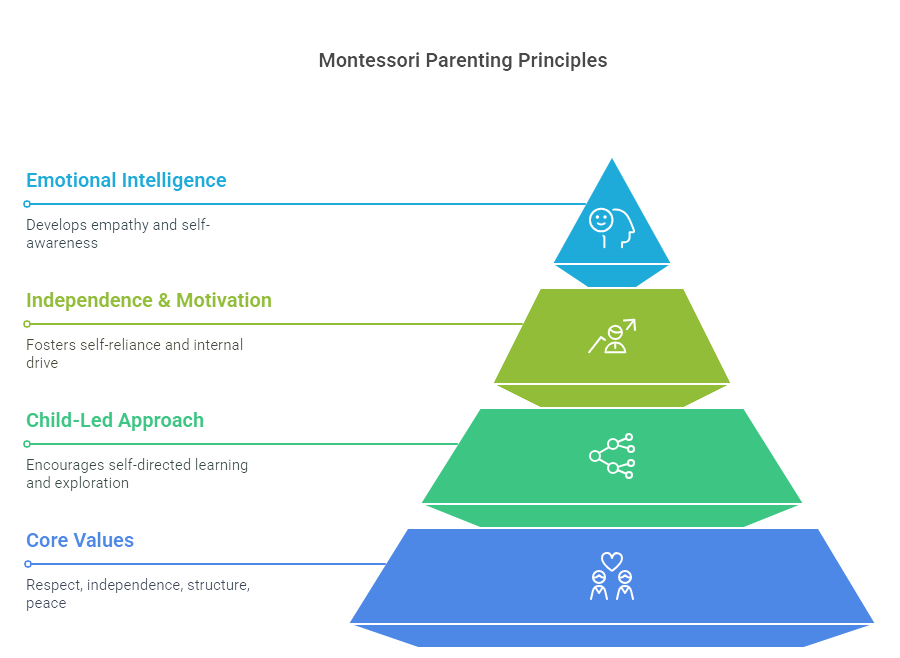
Montessori Principles That Changed Our Family Life
As we implemented Montessori at home, our transformation didn’t happen overnight—but it was steady and powerful. Here are the key Montessori parenting principles that had the biggest impact.
1. Respecting the Child as a Capable Individual
Montessori philosophy starts with respect: viewing the child not as a miniature adult or a blank slate, but as a person worthy of dignity and capable of contributing meaningfully to their environment.
We stopped issuing constant commands and started offering choices: “Would you like the red shirt or the blue one?” We listened more, talked less, and trusted our child’s natural abilities. As a result, our toddler became more cooperative and confident.
This shift in mindset—toward respectful parenting—fostered mutual trust and reduced the frequency of tantrums rooted in powerlessness.
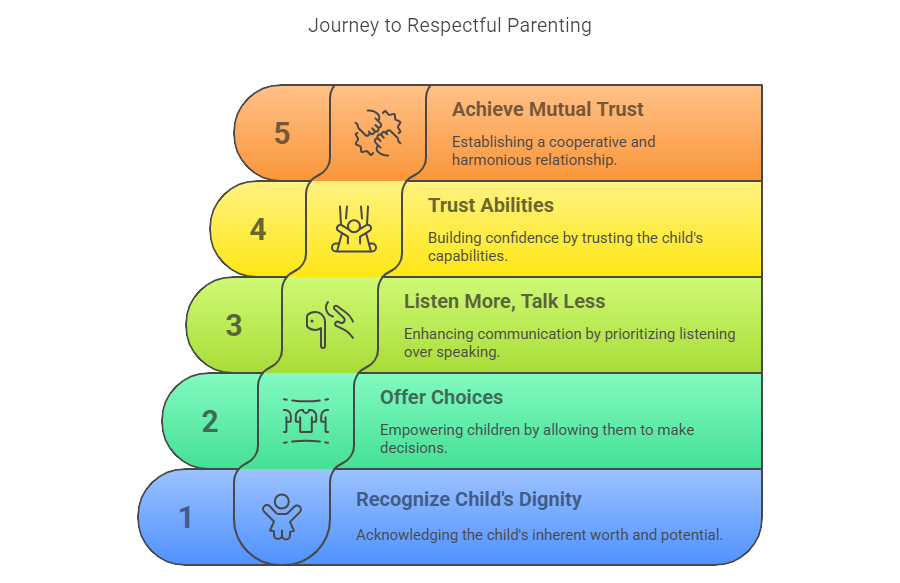
2. Creating a Prepared Environment
One of the most tangible changes we made was reorganizing our home into a prepared environment. Montessori emphasizes that children thrive in spaces designed for independence and order. That meant decluttering toys, using low shelves, and ensuring daily items (like snacks, clothes, and cleaning tools) were accessible to our child.
We rotated toys to reduce overwhelm and displayed materials in an inviting, intentional way. We noticed our child became more engaged, calm, and focused in play. The mess decreased. Our home felt more peaceful—because it was finally supporting our child’s developmental needs.
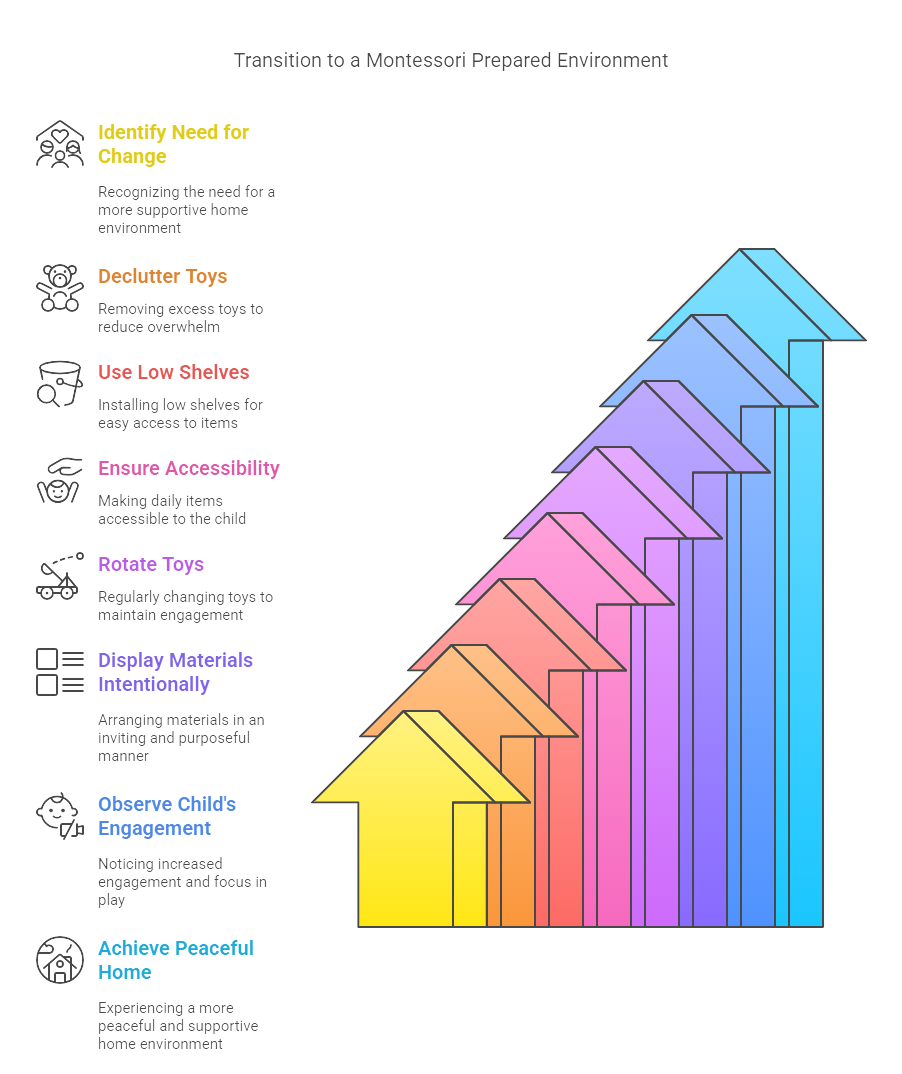
3. Fostering Independence
Before Montessori, we did almost everything for our kids. We thought we were being helpful. But in truth, we were robbing them of learning opportunities.
Montessori taught us to allow the child to do for themselves what they are capable of doing. We slowed down and gave time for our toddler to put on shoes, pour water, or wipe up spills. We introduced child-sized tools and involved them in cooking and cleaning.
Not only did this boost our child’s confidence, but it also reduced our stress. Fewer battles, more collaboration. What we once saw as chores became bonding moments and learning experiences.
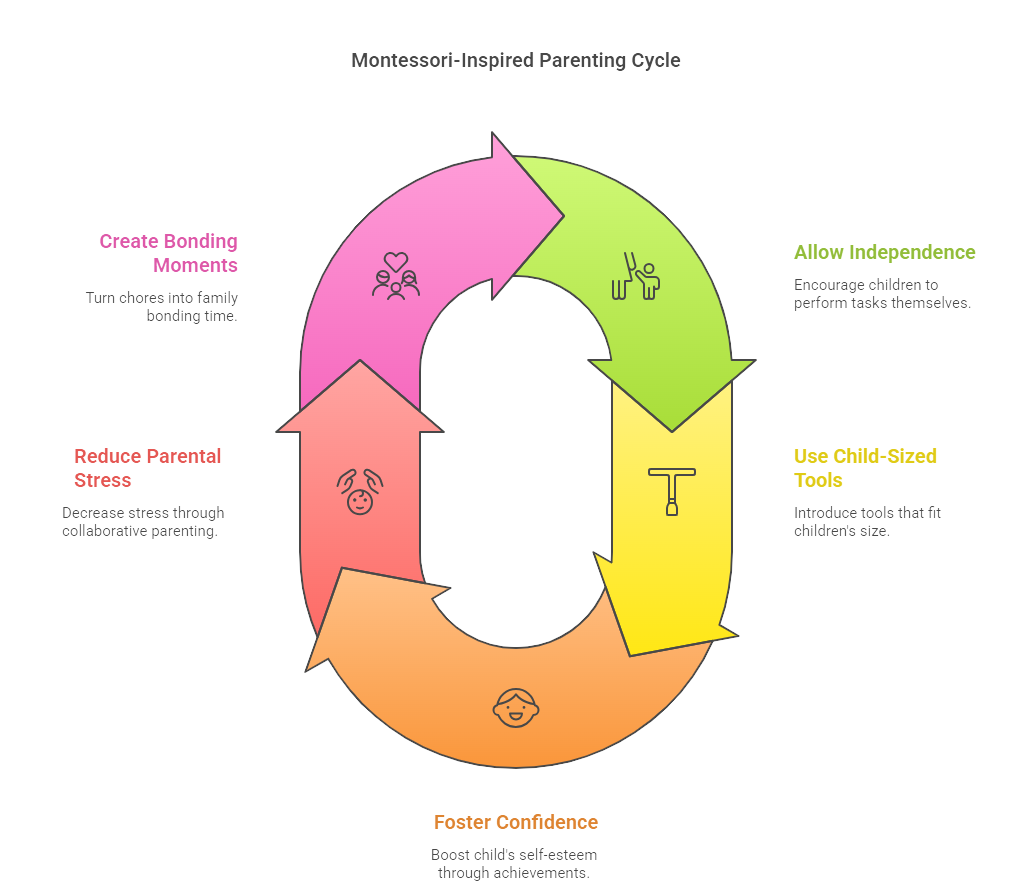
4. Freedom Within Limits
One of the most misunderstood aspects of Montessori parenting is the concept of freedom within limits. It’s not a free-for-all; it’s about allowing children autonomy within clearly defined, respectful boundaries.
For example, we offered freedom in choosing what to wear—but within a weather-appropriate selection. We provided a consistent daily rhythm, but within that rhythm, our child could choose when to read or play independently.
The result? Fewer power struggles. Our children felt empowered, yet secure. The structure gave them confidence, and the freedom gave them joy.
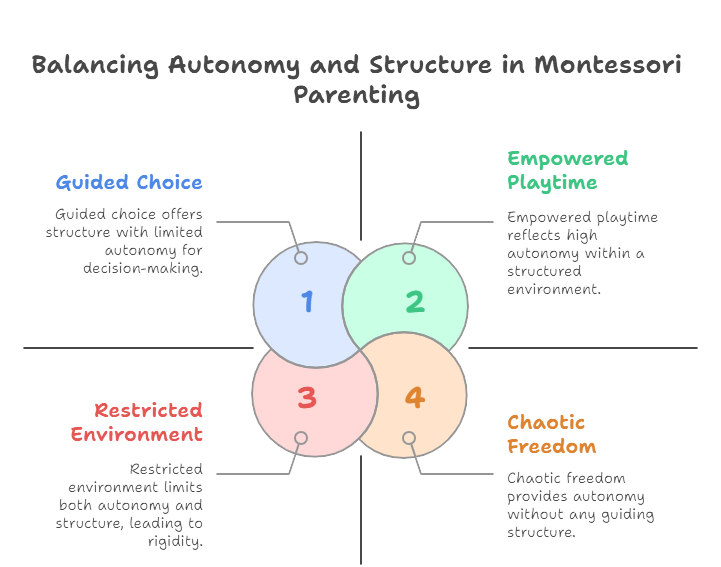
5. Modeling Instead of Controlling
In Montessori homes, adults act as guides, not controllers. Instead of constant correction, we began to model the behaviors we wanted to see: speaking calmly, tidying up, saying thank you.
Rather than scolding, we used gentle redirection and natural consequences. When our toddler spilled water, we handed them a towel. No drama, no guilt—just an opportunity to learn.
This approach nurtured empathy, problem-solving, and emotional regulation in our children. And it made us more mindful, too.
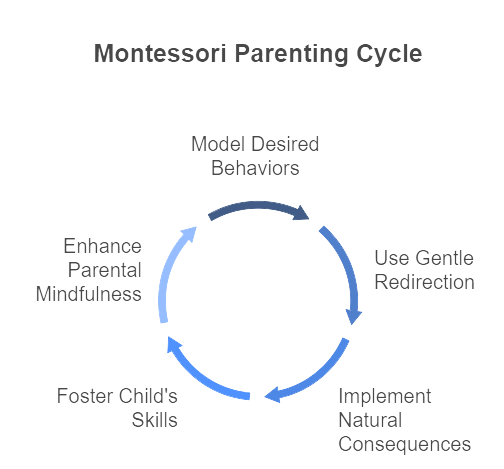
The Transformation: From Chaos to Calm
It’s hard to overstate the shift we experienced. Our mornings are now smoother, with our toddler independently dressing and helping pack their snack. Playtime is focused, calm, and creative. We have a predictable rhythm, fewer meltdowns, and more shared laughter.
Our children are more self-sufficient and confident. And we, as parents, feel more present and less reactive. The connection between us has deepened—because Montessori parenting isn’t just about raising children; it’s about transforming family life.
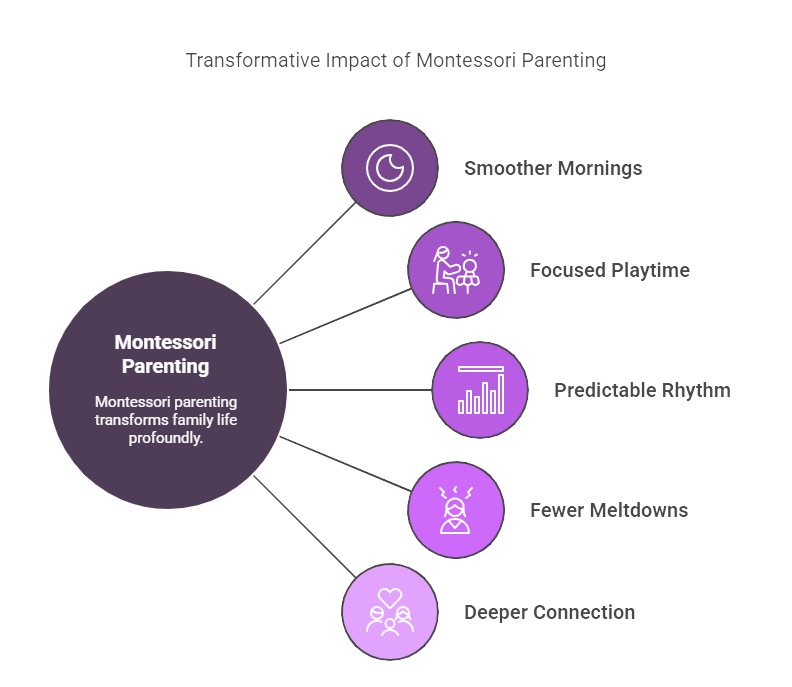
Challenges Along the Way
It hasn’t always been easy. There were moments of doubt, regressions, and days when I questioned whether I was doing it “right.” It required unlearning old habits, slowing down, and being patient—with our kids and with ourselves.
Not every day is perfectly calm. But Montessori parenting isn’t about perfection. It’s about intention, respect, and growth. And it’s incredibly adaptable—you don’t have to follow every rule or recreate a Montessori classroom at home.
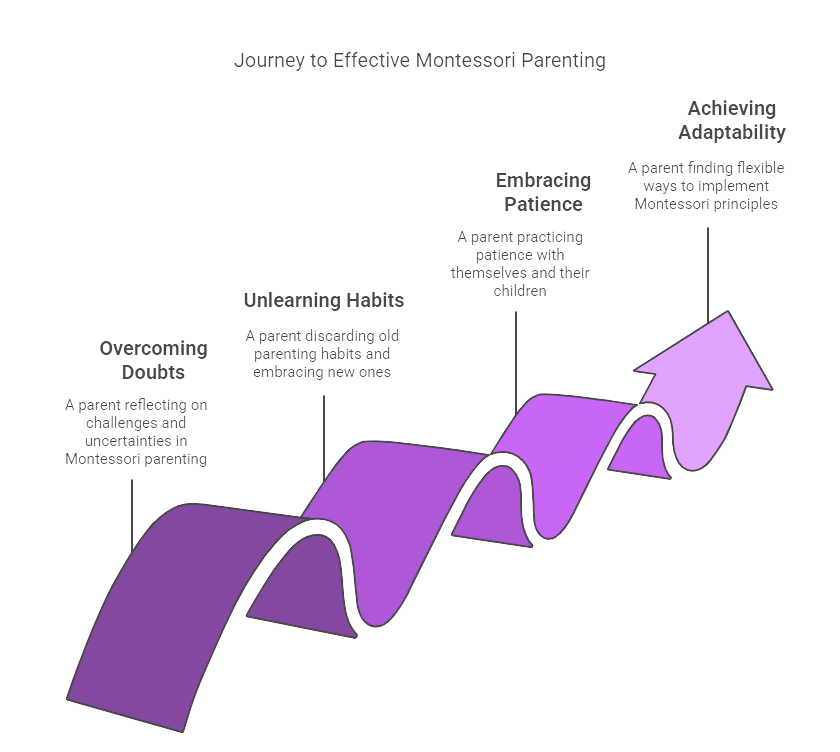
Encouragement for Other Parents
If you’re feeling overwhelmed in your parenting journey, Montessori parenting offers a gentle, practical way to bring more peace and connection into your home. You don’t have to overhaul your life overnight. Start small.
- Observe your child with curiosity instead of judgment.
- Make one space more accessible and inviting.
- Offer more choices and fewer commands.
- Slow down and let them help.
There are incredible resources out there—books like Montessori from the Start and The Montessori Baby, blogs, YouTube channels, and local Montessori communities. Start where you are.
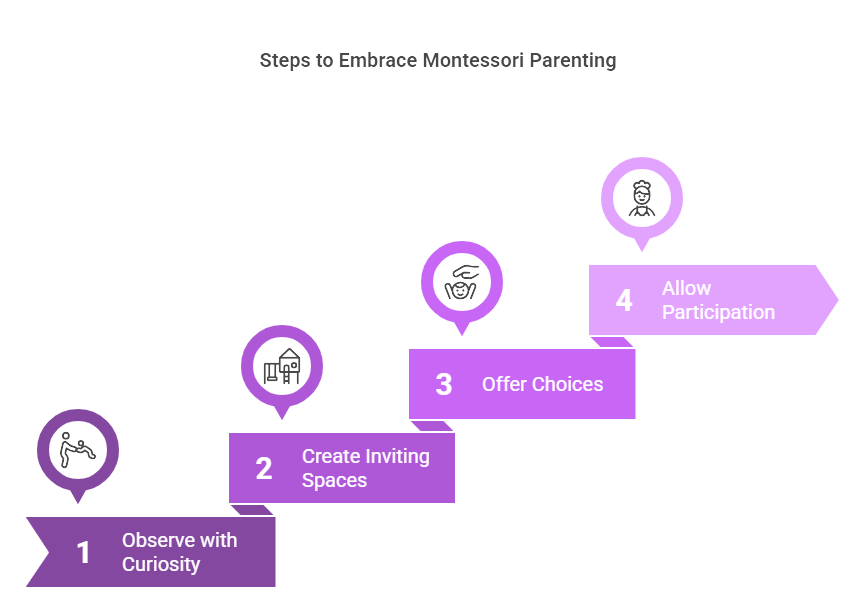
Conclusion
Our journey from chaos to calm wasn’t just about adopting a parenting style. It was about rediscovering joy in our family life—about seeing our children not as problems to fix, but as people to guide, love, and learn from.
Montessori parenting helped us create a home where peace is possible, where respect is mutual, and where growth happens every day—for both child and parent. And for that, we are deeply grateful.

